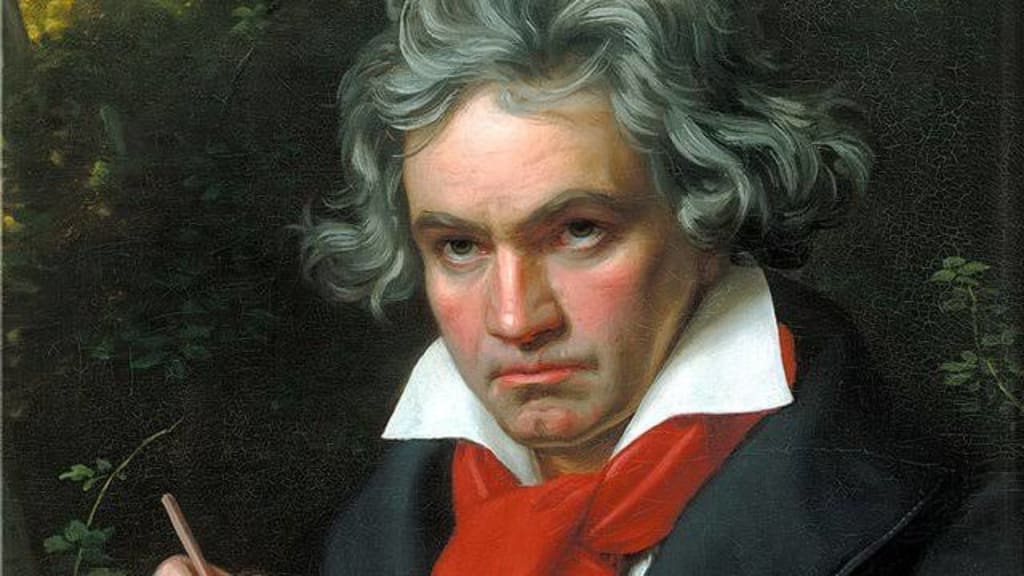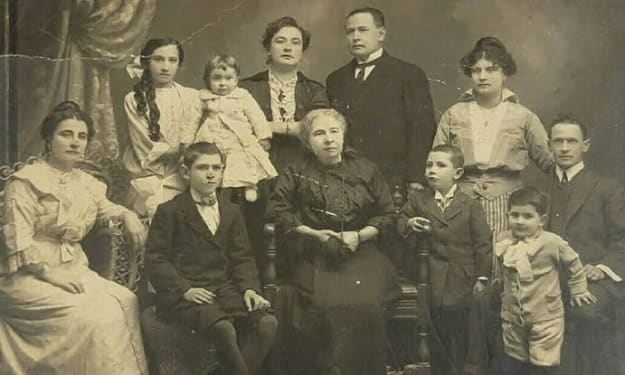BEETHOVEN: A SYMPHONY OF LIFE, LOVE, AND LEGACY
Unveiling the Remarkable Journey of Ludwig van Beethoven

Ludwig van Beethoven: a name that resonates through the corridors of musical history as one of the most influential and iconic composers. Born in December 1770 in the charming city of Bonn, Germany, Beethoven's journey from a prodigious young talent to a groundbreaking symphonic innovator is a tale worth exploring.
Early Life and Musical Beginnings
In the heart of Bonn, Ludwig embarked on a musical journey under the tutelage of his father, Johann. Much like Leopold Mozart's success with his prodigy children, Johann saw potential in his young son and sought to shape him into a musical sensation. Johann's audacious efforts even extended to altering concert posters to enhance Ludwig's prodigious image. This bold trendsetting, it appears, was not exclusive to Asian mothers who advocate for their children's excellence; Johann paved the way back in the 18th century.
However, behind the scenes of Beethoven's early triumphs lay a somber truth. Johann, plagued by alcoholism and abusive tendencies, overshadowed the young composer's life with turmoil. The echoes of out-of-tune melodies were often accompanied by Johann's frustrated outbursts, revealing a harsh environment that concealed Beethoven's potential.
Vienna: A Quest for Mastery and Artistic Identity
At the age of 16, driven by a desire to study under the wing of the great Mozart, Beethoven journeyed to Vienna. While history remains uncertain about their encounter, fate interjected when Beethoven was summoned home due to his mother's illness. The burden of family responsibilities intensified as his mother's passing exacerbated his father's alcoholism. In a courageous attempt to support his family, Beethoven, quite literally, played his way into the world of music by joining the viola gang.
The year 1792 marked Beethoven's relocation to Vienna, a city bustling with artistic fervor. His encounter with Haydn, composer of the iconic Surprise Symphony, marked a turning point. Here, Beethoven embraced the tradition of cultivating patrons, who acted as musical sugar daddies, supporting him in exchange for compositions and performances tailored to their desires.
Passions and Love Letters
Amidst his musical pursuits, Beethoven's personal life was marked by significant relationships. Josephine, a devoted student, became a beacon of inspiration and affection. Though societal norms frowned upon unions between nobles and commoners, their deep connection transcended convention. Passionate love letters penned by Beethoven attest to the ardor he held for Josephine. In his heart, an enigmatic letter addressed to his "immortal beloved" concealed a sentiment that continues to intrigue historians.
Beyond Josephine, the elusive presence of another woman, Elise, hints at a complex emotional landscape. Beethoven's Symphony No. 25, known affectionately as the "Fur Elise," stands as a testament to this mystery that continues to captivate hearts and intrigue minds.
Symphonic Revolution and Personal Triumphs
Beethoven's compositions echoed his ever-evolving spirit. His piano sonatas, such as the revered Pathetique and Moonlight, have become touchstones for aspiring pianists. The 18th century witnessed Beethoven's audacious steps toward his unique musical language. As he navigated the realms of Classicism and Romanticism, his Third Symphony showcased his orchestral prowess. He defied convention, crafting a first movement of unparalleled length and introducing novel structural elements.
Eroica: A Symphony of Transformation
Eroica, Beethoven's Third Symphony, initially dedicated to Napoleon, epitomized his revolutionary spirit. Yet, when Napoleon crowned himself king, Beethoven's fury manifested as he defiantly scratched out the dedication. A testament to the composer's resilience and depth of feeling, Eroica encapsulated the turbulent times and marked the composer's transition from Classicism to Romanticism.
Ninth Symphony: A Triumph Amidst Adversity
As Beethoven's hearing waned, his creativity soared to new heights. In 1822, he embarked on his Ninth Symphony, embracing unprecedented innovation. Incorporating a chorus and vocal soloists within a symphony, he defied his auditory limitations. Despite conducting the premiere while practically deaf, Beethoven's fervent energy permeated the performance. His physical expressions captured the intensity of his music, creating a lasting impression on all who witnessed the spectacle.
A Legacy of Transformation and Immortality
In 1827, the world bid farewell to Beethoven, yet his legacy endured. Through his symphonies, sonatas, and letters, he etched his name into the annals of musical history. The resonance of his compositions speaks to his exceptional ability to evoke emotion and forge connections across generations. While Beethoven may have departed, the echoes of his symphonies continue to reverberate, defying time and reaffirming his place as a maestro who defied convention and crafted music that touches souls.
Conclusion: The life and works of Ludwig van Beethoven stand as an enduring testament to the indomitable spirit of artistic innovation. From his tumultuous beginnings to his triumphant symphonic revelations, Beethoven's journey continues to captivate hearts and inspire minds, proving that even the most profound challenges can be transformed into timeless artistry.Start writing...





Comments
Serein Reyn is not accepting comments at the moment
Want to show your support? Send them a one-off tip.